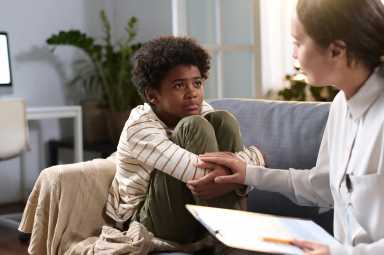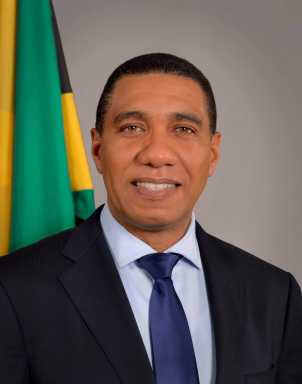Listeners:
Top listeners:
-
play_arrow
RadioJLR Just Press Play
Op-ed | Robust mental health programs needed to support a twice-traumatized young generation

Fear is weighing on our city’s young people.
The Trump administration has authorized ICE agents to enter schools and other previously protected spaces, creating new anxiety for immigrant families. Attacks on identity and self-expression are also threatening LGBTQ youth’s safety and fundamental rights.
Schools—where young people are supposed to be able to seek safety, stability, and support—are instead exacerbating stress levels in an already stressed-out generation.
The result? Young people are being traumatized twice over — first, by COVID-19, which stole loved ones, isolated them from friends, and upended their education five years ago this month; and now by a federal administration leading with fear and uncertainty.
As a part of building out this mental health infrastructure, we at New York Junior Tennis & Learning (NYJTL) have embedded mental health supports into our after-school programs, on the courts, and at our sites across the five boroughs. In these efforts, we’ve learned key lessons that we hope other youth nonprofits can implement too.
First, we have begun enhancing our after-school programs with assigned social work interns across five after-school programs at middle schools in the Bronx, Queens, and Brooklyn through partnerships with the Silberman School of Social Work at Hunter College, Lehman College’s Department of Social Work, and Columbia University School of Social Work.
Guided by a full-time staff social worker, our social work interns are working with youth experiencing increased anxiety, depression, and stress, encouraging young students to be open about their mental health and seek help when needed.
Our social-emotional learning (SEL) groups help students develop emotional regulation and self-awareness skills. Social workers also share critical resources directly with families and have developed a community guide to support families. And with more social workers on the ground, we better understand each school’s needs.
Another key lesson is clear: one-size-fits-all solutions don’t work. Every child, school, and community is different, and programs must adapt to those differences.
We tailor support based on what families and students tell us and show us what they need.
For example, at a Queens after-school site that supports many neurodivergent students, we promote mindfulness, sensory-based activities, and emotional regulation to help students build coping skills and confidence. At a Bronx school where students and families are navigating complex mental health challenges, we foster resilience by connecting them to crisis intervention services and strengthening their access to community supports.
But if there is one silver lining from the pandemic’s circumstances, it’s that it forced us to build a strong mental health infrastructure for young people, preparing us for the conditions we face today. We all hold a collective desire to adapt to students’ needs and support their mental health in all areas of their lives. Mental health supports don’t just happen in a counselor’s office.
We have also been preparing all of our team members — counselors, teachers, coaches, and more — with training to support children’s mental health.
For instance, we’ve certified nearly 200 staff in Youth Mental Health First Aid, giving them the tools and confidence to help youth dealing with a mental health problem or crisis. We’ve trained dozens more staff in restorative justice and trauma-informed practices, as well as 300 families in Mental Health First Aid workshops.
These efforts have been instrumental to ensure coaches—who are often trusted figures for students—are equipped with skills to recognize and respond to mental health concerns. Already, our staff feels more confident in recognizing the signs of mental health struggles and intervening appropriately.
We are also integrating restorative justice and trauma-informed practices into our work. In practice, this involves teaching active listening, encouraging students to share perspectives with “I” statements, holding problem-solving circles, and affirming students’ strengths.
NYJTL’s programs show what’s possible. But addressing youth mental health on a larger scale requires more commitment from city and state leaders.
No afterschool program can single-handedly calm the fears of students who worry that their parents might be deported while they’re at school. No single nonprofit can ensure that every child struggling with trauma gets the care they need.
We need stronger leadership from city and state leaders to keep our students’ mental health a priority, and alleviate anxieties associated with the federal Trump administration.
Flexible, and robust, funding is also essential for this work. Grants like those from the Mother Cabrini Health Foundation, which support our social work partnerships, are a good start, but more ongoing, sustained investments are needed. Youth mental health must be a long-term funding priority.
With the right resources, youth-serving nonprofits can continue to make a difference.
The past five years have been a wake-up call. It is time to invest more into youth mental health. Every child deserves the mental health support they need to thrive.
Grace Bodenmann is the chief education officer, and Emily Haghtalab is a social worker, for New York Junior Tennis & Learning.
Written by: Adm
Similar posts
© 2025. All Rights Reserved by Radio-JLR


